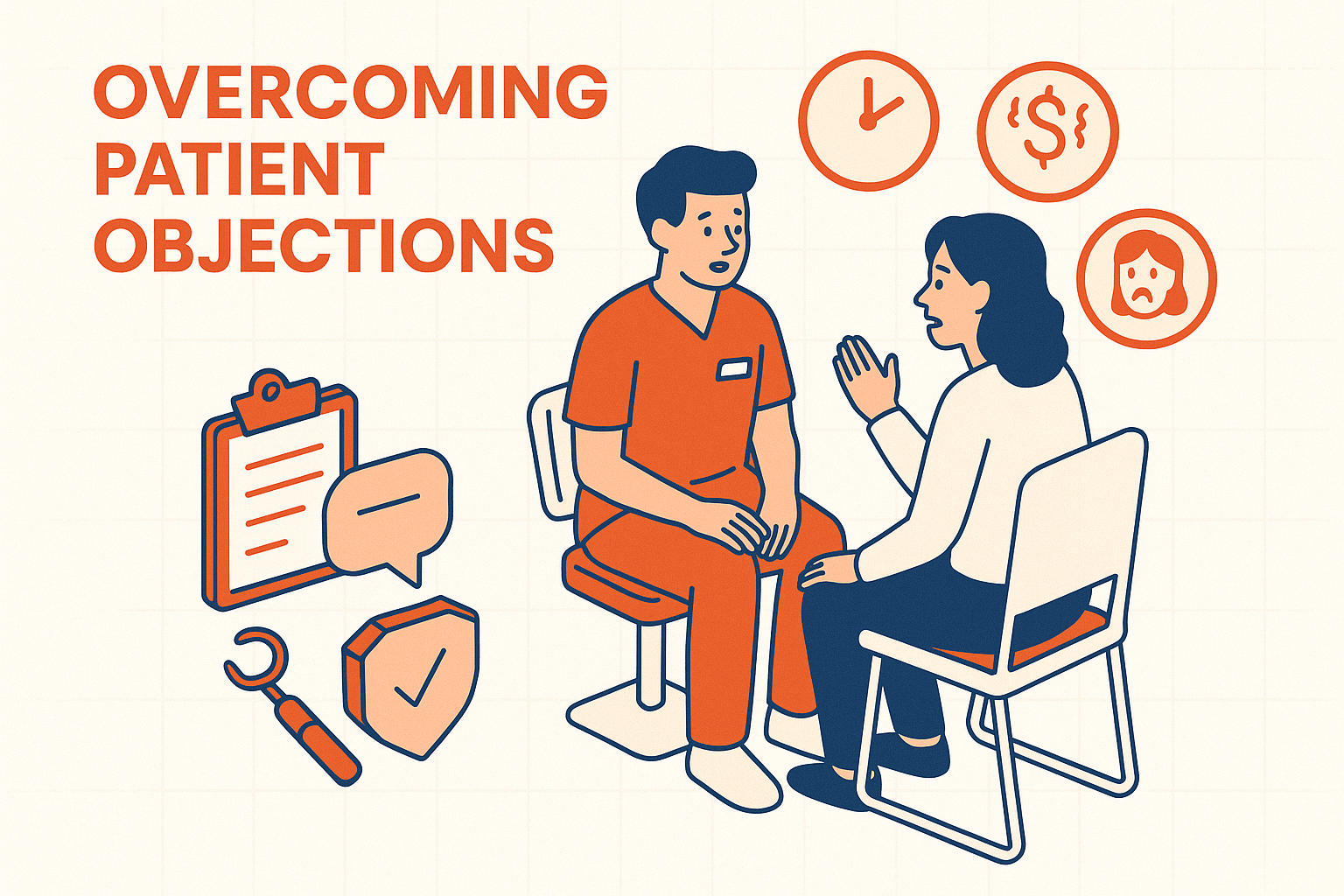Overcoming Patient Objections: Strategies for Dental Professionals in Toronto

Bust Barriers by Taking Concerns Head-On
In dental clinics throughout the Greater Toronto Area (GTA), patient objections remain a common barrier to case acceptance and treatment adherence. Statements like “I don’t have time” or “This seems expensive” reflect reluctance rooted more in uncertainty than in fact. By mastering objection handling, dentists and their teams can elevate communication, improve patient trust, and ultimately lead more patients toward successful treatment outcomes. This article outlines practical, Canadian-context strategies Toronto dental professionals can implement immediately in their practices.

Understanding the Roots of Patient Objections
To address objections effectively, one must first understand their emotional and psychological underpinnings. Most patient hesitations fall into a few key categories:
- Time Constraints: Busy work-life schedules in urban areas like Toronto make patients hesitant to book or commit to multi-appointment procedures.
- Fear or Anxiety: Negative memories of past dental experiences or general anxiety can prevent patients from saying yes to treatment—even when they understand its logic.
- Financial Concerns: A common challenge, patients often perceive treatments as expensive without understanding the long-term cost-benefit ratio.

Effective Strategies for Addressing Objections
1. Build Trust Through Active Listening

The most powerful way to gain patient confidence is by making them feel heard. Active listening—maintaining eye contact, paraphrasing concerns, and validating emotions—creates a safe environment where patients can express uncertainty without judgment.
When the patient feels respected and involved, they are far more likely to move forward with treatment recommendations. Train your team using role-play scenarios to simulate such conversations and improve responsiveness.
2. Ask Questions to Uncover Real Objections

Generic push-backs such as “I’ll think about it” or “Not right now” can often mask deeper fears. Use open-ended questions like:
- “What’s holding you back about starting treatment today?”
- “What’s your biggest concern about this procedure?”
Tools such as patient satisfaction surveys or chairside questionnaires can also help uncover patterns and help you preempt objections for common procedures like crowns, implants, or clear aligners.
3. Provide Personalized Solutions

Once objections are identified, tailor your responses for maximum impact. For example:
- Time: Suggest lunchtime or weekend slots. Offer efficient digital scheduling and text reminders.
- Fear: Discuss available sedation options or show photos of the comfortable operatory environment. You might also introduce noise-canceling headphones or TVs during procedures for added comfort.
- Finances: Highlight flexible options. EBIKO Dental offers practice-enhancing products and solutions that support patient access to care, including competitive payment processing systems and affordable material bundles.
4. Share Patient Success Stories

Testimonials and before-and-after visuals influence behavior. Share anonymized success stories through brochures, chairside slideshow presentations, or your website. A simple video from a patient who overcame fear and is now smiling confidently can make an enormous difference.
You can even integrate this into your in-clinic marketing using affordable visual media equipment available at EBIKO Dental.
5. Connect to Their Emotional “Why”
Many patients are motivated by deeply personal reasons: wanting to smile in photos, speak confidently at work, or eat comfortably at social events. Remind them what improved oral health enables on a human level—not just medically. This emotional link often bridges the gap between indecision and action.
Conclusion
Addressing patient objections in the dental clinic is not simply a sideline skill—it’s central to lasting patient relationships. With the right mix of emotional insight and clinical tools, Toronto’s dental professionals can shift hesitation into readiness. Start by listening, then tailor responses that speak directly to the patient’s reality.
Clinics that integrate reliable, patient-centered solutions from trusted partners like EBIKO Dental are better equipped to meet expectations and increase retention. Whether through sedative aids, process automation tools, or material supplies, these services reinforce your clinic's credibility and compassion.

Enhance Your Practice
Toronto-based dentists seeking growth should consider training team members on proactive communication techniques, setting up tech-friendly scheduling systems, and partnering with local suppliers that understand their specific challenges. EBIKO Dental offers a wide range of practice support products, from infection control to operatory accessories—all proven to enhance treatment efficiency and patient perception.
In the rapidly evolving landscape of Canadian dentistry, overcoming objections means much more than closing a sale—it’s about creating a culture of trust, clarity, and long-term care.

